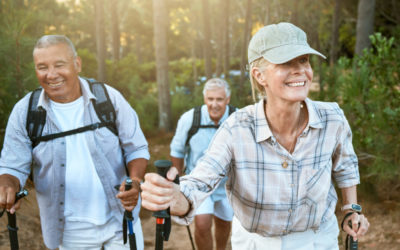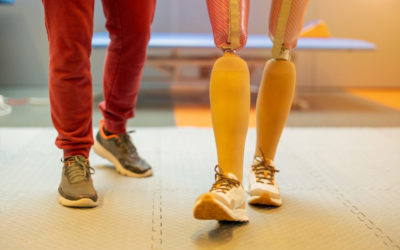Quick Hits
Daily brief research updates from the cognitive sciences

Having a sense of purpose is a pretty good thing to have because it seems to correlate with multiple health and life satisfaction measures. If you have a healthy sense of purpose you will likely live longer, be happier, have less disease, lower risk of cardiovascular disease, be wiser, be less lonely, and have lower risk of various neuro-degenerative diseases such as Alzheimer’s.
All in not bad!
But what drives purpose? There are multiple factors and I have reported on some of these before. But this study just out by Gabrielle Pfund et al. of Washington University in St Louis found something surprisingly simple, cheap, and effective.
What did they find?
For this study they tracked 100 participants, aged on average 71, over 15 days. They were asked three times a day about the quality of their social interactions and then in the evening asked how much purpose they currently felt in their life.
The results showed that the quality of interactions strongly influenced their sense of purpose. Simply, if you have positive social interactions, you feel an increased sense of purpose in life.
This is surprising and unsurprising simultaneously.
It is surprising for numerous reasons. Firstly, the strong assumption is that purpose is linked to multiple big-ticket items such as religion, spirituality, and contributing to the greater good in society, not simple short interactions during the day. Secondly most research seems to see sense of purpose as a stronger more stable personality trait rather than something that fluctuates on a daily basis.
However, it is unsurprising because social interactions have been shown to influence just about everything. There are multiple reasons for this and I have written about some of the positive chemicals that are released in the brain and body and contribute to general wellbeing in other places (such as here).
So, rather than think about big things in creating a sense of purpose, it seems that simply ensuring that we have more, and better, social interactions will have multiple positive knock-on effects.
That is a really important insight. The small things do count and contribute to the big things. And the benefits to individuals and society are dramatic.
More importantly you can affect this by having positive social interactions with others. It will benefit you, and it will benefit others also, and it will in turn benefit your community and society.

Andy Habermacher
Andy is author of leading brains Review, Neuroleadership, and multiple other books. He has been intensively involved in writing and research into neuroleadership and is considered one of Europe’s leading experts. He is also a well-known public speaker speaking on the brain and human behaviour.
Andy is also a masters athlete (middle distance running) and competes regularly at international competitions (and holds a few national records in his age category).
Reference
Gabrielle N. Pfund, Matthias Hofer, Mathias Allemand, Patrick L. Hill.
Being Social May Be Purposeful in Older Adulthood: A Measurement Burst Design.
The American Journal of Geriatric Psychiatry, 2022; 30 (7): 777
DOI: 10.1016/j.jagp.2021.11.009
More Quick Hits
The Seven Habits to Reduce Dementia
We would all like to age well remaining cognitively active into older and old age. I have reported multiple times…
Mind Over Matter – Regaining Movement
This is the type of study and insight I like. Kind of amazingly simple but effective
Do We Lose Brain or Muscles First?
As we age things start to decline, we all know that – happens to the best of us…
Cravings for Fatty Food and the Gut-Brain Connection
Research hot off the presses is showing something interesting happening with our desire for fatty food….
How to Form Optimal Groups for Learning
There has been a long-standing debate and discussion in learning contexts for what is the best way to form groups for optimal learning when there are different abilities in those groups…
Extreme Temperatures Increase Hate Speech Online
I am sure we all know that feeling of getting more irritable when temperatures rise – well we now have evidence that…






